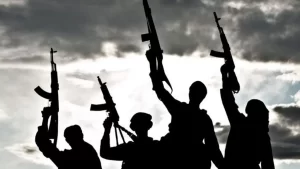
Hey there, middle schoolers! Today, we’re going to talk about a story from former President Olusegun Obasanjo. He recently shared how his political party, the Peoples Democratic Party, lost a local government election in Ogun State back in 1998. And guess what? It was all because he refused to bribe the police and the Independent National Electoral Commission (INEC)!
So, here’s what happened. Party leaders told Obasanjo that they needed to set aside some money for the police and INEC. But Obasanjo didn’t agree with this idea. He believed that these officials were already government workers who received monthly salaries. Why should they be bribed?
Obasanjo shared this story during a consultation event in Abeokuta, where he talked about rethinking democracy in Africa. He wanted to discuss how the “Nigerian factor” often comes up when people talk about democracy and development in Nigeria.
Now, what is this “Nigerian factor” all about? Well, Obasanjo first heard this term during the first local government election in 1998. His party had planned for the election without considering this so-called factor. And guess what happened? They lost!
Obasanjo explained, “When things go wrong, you said the Nigerian factor. The first thing I learnt in politics was this thing called the Nigerian factor.”
During that election, party leaders came to Obasanjo and said they needed money for INEC and the police. But Obasanjo didn’t agree with this approach. He thought it was nonsense because these officials were already being paid by the government. So, he said, “You cannot do that.”
But unfortunately, his party lost all the local governments. And guess what the politicians said to him afterwards? They told him, “Baba, you see? If you had allowed us to do it the way we used to do it, we would have won.” Obasanjo felt guilty about it.
During the next election, Obasanjo decided not to get involved. He stayed in his house and let the politicians do whatever they wanted. But the result was still the same. One of the people who received money didn’t even distribute it properly
Obasanjo believes that the Western liberal democracy being practiced in Africa doesn’t fully understand human nature and the African situation. He thinks it’s time to be realistic.
He also mentioned that poverty and lack of education are big enemies of democracy. When people are hungry or uneducated, they can easily be influenced or manipulated. And that’s not good for democracy.
So, there you have it, middle schoolers! Obasanjo’s story shows us the importance of standing up against bribery and corruption, even if it means losing an election. It also reminds us that democracy needs to consider the unique challenges and realities of each country. And most importantly, it highlights the need to fight against poverty and ensure that everyone has access to education. Let’s strive for a better and fairer democracy!





